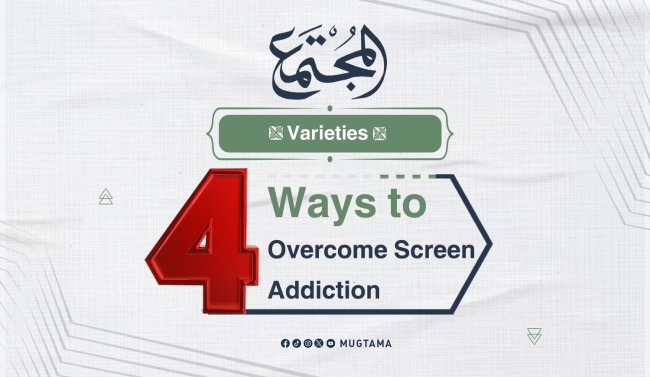In our present age, the digital world has become an inseparable part of our lives. From smartphones to laptops, social media, and digital platforms, we are surrounded by screens everywhere. With the increase in time spent in front of screens, a new movement has emerged calling for “digital detox”, where many people seek to distance themselves from screens and regain their mental and psychological balance. But is it really possible to disconnect from the digital world?
Why do we need digital detox?
Studies have shown that excessive screen use can affect mental and physical health. Among the most prominent effects are increased anxiety, depression, sleep difficulties, and physical pains such as neck and back pain. Continuous exposure to the flow of information via social media can also impact focus, making us more susceptible to mental fatigue.
Furthermore, studies have indicated that temporarily distancing from screens can positively affect mental and physical health. Individuals who allocate time away from screens observe improvements in sleep quality, enhanced focus, and reduced levels of anxiety and stress. Engaging in real activities allows them to build deeper social connections and enjoy the present moment without distraction. As the Prophet ﷺ said, “your self has a right on you.” (Al-Albani)
From here, the concept of digital detox arose as a means to regain mental and physical peace by dedicating time free from screens.
Ways to implement digital detox
If you wish to disconnect from screens and detox from digital addiction, here are some steps you can follow:
1. Set specific times for phone use
Allocating specific times to use the phone or computer throughout the day helps reduce distractions and avoid falling into digital addiction. One effective approach is to designate specific times to check your devices, such as in the morning and evening, instead of frequent checks throughout the day. It’s also advisable to avoid using the phone at least half an hour before bed since the blue light emitted from the screen affects sleep quality and makes sleep shallower.
2. Turn off unnecessary notifications
Constant notifications are a primary cause of distraction as they stimulate us to check the phone continuously, interrupting focus. This issue can be addressed by turning off notifications for unnecessary apps and keeping only essential notifications, such as those related to family or work. This way, focus remains on important matters, and time wasted in aimless browsing is minimized.
3. Replace digital activities with real-life activities
We often spend our time on phones engaging in leisure activities such as watching videos or browsing the internet. However, replacing these activities with real-life alternatives can be more beneficial and enjoyable. For example:
- Reading: Reading books allows you to expand your knowledge and increase your information in a screen-free manner.
- Exercising: Exercise is not only a form of entertainment but also beneficial for the body and overall health, helping improve mood.
- Spending time with family and friends: Real social relationships provide us with happiness and mental comfort that digital activities cannot compensate for.
4. Dedicate a screen-free day
Try dedicating one day a week where you completely refrain from screens. During this day, you can engage in outdoor recreational activities such as hiking, walking in nature, or spending quiet time in reflection and contemplation. A screen-free day can be an opportunity to recharge, relax, and reduce the mental exhaustion caused by constant screen use.
Mental health experts say balance is the key; we cannot live in complete isolation from technology, but we can learn how to use it healthily. Experts suggest following a structured approach so that our relationship with technology is based on balanced control rather than addiction. Moderation is what Islam encourages, as Allah Almighty says, “And thus we have made you a just community.” (Al-Baqarah: 143)
-------------------------------------------------------------
Source:
- Article published on Kataeb.org


